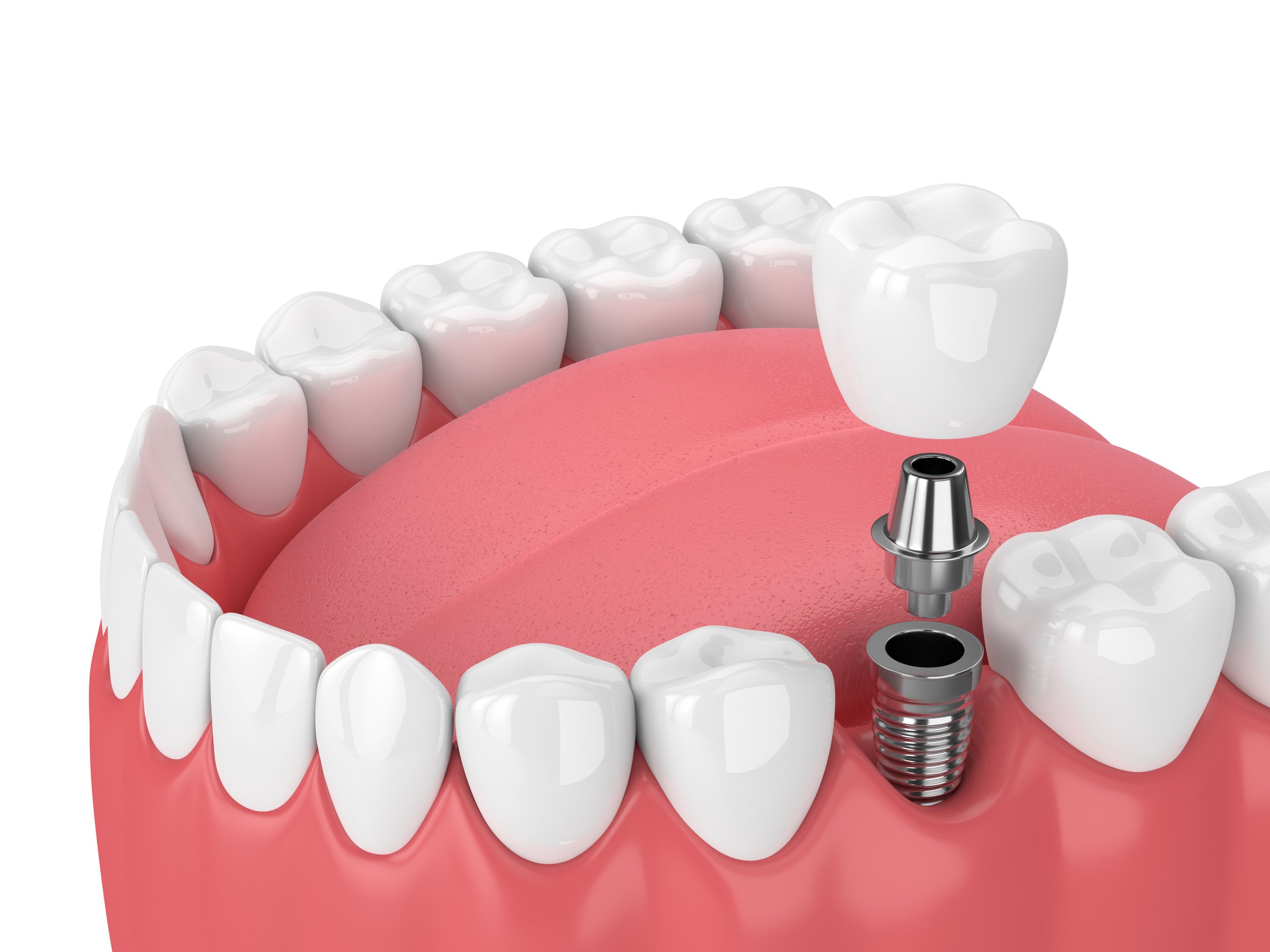Implants
-

What are they?
Dental implants are a popular and effective solution for replacing missing teeth. They consist of a titanium post that is surgically inserted into the jawbone, acting as a stable root for a crown, bridge, or denture. This procedure not only restores the appearance of the smile but also helps maintain jawbone health by preventing bone loss that can occur after tooth loss. Implants offer durability and functionality similar to natural teeth, allowing individuals to eat, speak, and smile with confidence. With proper care, dental implants can last many years, making them a worthwhile investment in oral health.
-

What are the benefits?
Dental Implants behave like natural teeth
One of the biggest advantages of an implant is that it restores full chewing power. Most patients can’t tell the difference between their natural teeth and the implant tooth. They can eat with it completely normally, and they can brush and floss normally as well.
Dental Implants can last a lifetime
Whereas a dental bridge may only last around 10 years or so, dental implants can last a lifetime. The implant is made from titanium and integrates with the jawbone. It’s bio-compatible, meaning that it’s non-toxic and not rejected by the body. All in all it makes a powerful replacement tooth.
Dental Implants prevent bone loss
Where there is no tooth, the jaw bone in the empty space deteriorates due to lack of stimulation. If no implant is placed in the first year of losing a tooth, that bone area loses 25% of its volume, and bone loss continues over the years.
Dentures can even accelerate bone loss as they often become loose, and then rub against the bony ridge, gradually wearing it away. Because an implant replaces the root as well as the tooth, and chewing is restored to normal, it provides the needed stimulation for natural bone growth.
Dental Implants keep adjacent teeth stable
The gap from a missing tooth can cause adjacent teeth to crookedly shift towards the gap. This pulls your teeth out of position and can affect your bite, your ability to chew and your appearance. It can cause interference that makes tooth replacement difficult later. A poor bite can also lead to issues with your TMJ (temporomandibular joint) and may result in pain and headaches.
Dental Implants can help keep you free of gum disease
A missing tooth gap can act as a trap for food and bacteria and can lead to gum disease.
-

What is the first step to see if you are a good candidate for implants?
Your first step is a free consultation with Dr. Matthew McCracken. He will review treatment options with you and answer any of your questions. Our free implant consultation includes the following:
Consultation with the Doctor
During your consultation, you will have the opportunity to discuss your oral health and treatment goals with our experienced dentist. This is a crucial first step in exploring dental implants as an option for restoring your smile.
Learn About the Different Treatment Options
You will receive detailed information on various treatment options available for dental implants, including the procedure itself and the types of implants that may be suitable for your situation. This will help you make an informed decision.
Find Out If You Are a Candidate for Dental Implants
Our doctor will assess your dental health and bone structure to determine if you are a suitable candidate for dental implants. Factors such as existing dental conditions and overall health will be taken into account during this evaluation.
Get All Your Questions About Dental Implants Answered
This consultation is a perfect time to ask any questions you may have about dental implants. Whether it's concerns about the procedure, recovery time, or long-term care, we are here to provide clear and comprehensive answers.
Written Treatment Plan
After the consultation, you will receive a